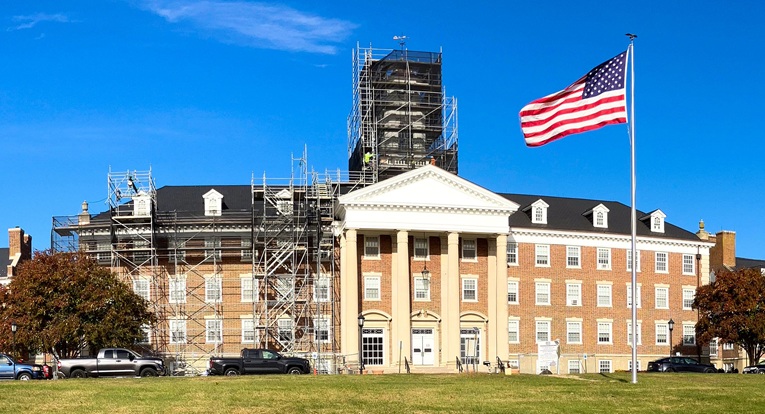Economic Development Coordinator Charise Liggins has stepped down. She had her final meeting with the Greenbelt City Council at a budget worksession on April 20. Having started in 2018, and the first to ever hold that position in the city (of which she feels “honored”), Liggins received high praise from council for her tireless work, creative ideas and extensive outreach to the city’s businesses. They credited her for helping to maintain stability and even growth in the city’s economy throughout the travails of the pandemic, where fresh and innovative approaches were essential. Liggins characterized her departure as bittersweet, but emphasized that she saw “an amazing future for economic development in the city.”
Liggins was instrumental in creating a robust communication system among the city’s businesses, connecting them to available resources, providing advice on pivoting to new market strategies and creating events like the small business award, all of which council hopes will continue under new leadership. Councilmember Judith Davis called her the cornerstone of these and future efforts.
A new economic development coordinator is expected to be hired in the next three weeks, with many résumés having come in. At present, Acting Assistant City Manager Debi Sandlin holds this position and will assist in the transition.
At the meeting, Liggins and Acting City Manager Timothy George shared highlights of the budgetary needs for economic development in the next fiscal year.
There was a discussion concerning the city’s revolving business fund, which Davis said was in need of reinvention. George said that the current level is $150,000, but both he and Liggins felt that $750,000 would be a more realistic amount to really make a significant difference. George stressed that a single loan could be $150,000, requiring five to 10 years to regenerate itself. This would be part of a more proactive and aggressive business retention and expansion program.
Mayor Emmett Jordan expressed that he was “passionate that the city sustains its vital economy” which is highly “diverse for a city this size.” He felt that business in general is in a period of evolution, and will need an entirely new viewpoint and strategy if the city is to move forward.
Councilmember Rodney Roberts stated that $750,000 is an unrealistic and prohibitive amount to aim for, asking where such monies will come from and the probable burden it will put on taxpayers. Roberts felt that a city of this size should not be providing business aid of this level, that “business should fund itself.” He said that the pandemic has seen many opportunities and new businesses come to the city and that Greenbelt’s ideal location will make it attractive to business in the future.
Jordan and Councilmember Ric Gordon felt that some small businesses really need a boost in order to weather challenges and that making wise investments, including into infrastructure, will benefit the city in the long run.
Councilmember Colin Byrd stressed that while retention of existing businesses is vital, more resources should be channeled into assisting new businesses and entrepreneurs.
Office vacancies have dropped from 17.5 percent to 12 percent, which Liggins explained was perhaps due to factors like the desire for many to work in areas close to home. Jordan was apprehensive as to what will happen when the current rental leases expire and if the trend will worsen. Liggins said that businesses, even those on a hybrid schedule, still need spaces and that she anticipated seeing a new approach as to how that space is used.
The Granite Building was cited as a successful model for an incubator for small business, having been lauded outside of Greenbelt.
In a separate interview, Liggins shared that she will be joining the World Trade Center Institute in Baltimore where she will oversee a fellows program for global executives.
Regarding her time in Greenbelt, Liggins found it “a tremendously impactful experience,” and was “most proud of the work we did collectively (council, city manager and dedicated volunteers) to help businesses impacted by the pandemic.”
She said that the work of economic development is ongoing, and looks “forward to seeing council work with the next economic development coordinator and the city manager to focus on developing a strategic plan and coalescing around key economic development priorities,” that will “position the city for long term growth and sustainability.”



